#source: neil gaiman's norse mythology
Note
do you have any like, folkore book recommendations? it could be of any folklore! although, i mainly know about Greek & Norse. or maybe perhaps, books about witchcraft & demonology?
Anon I am kissing you on the forehead. thank you for this ask
If you like Norse myths, Norse Mythology by Neil Gaiman is a really good starting point – I adore how Gaiman weaves a narrative through the tales so that they feel cohesive. (I think this can be a slightly problematic practise, but imho it's also very effective if you want to just read and enjoy some myths). I read it in one day and then had Many Thoughts for the rest of the week.
Northern Lights: Legends, Sagas and Folk-tales edited by Kevin Crossley-Holland is a collection of Norse and Germanic stories. I've been meaning to reread this one because I don't think I was in the right headspace to really enjoy it the first time, so I can't give much of a review other than I feel it gives a really nice entry-point to anyone who wants to branch out beyond the more popular Norse myths. (Plus, it's up on the Internet Archive)
For a more scholarly deep-dive into Norse myths, I wholeheartedly recommend Gods and Myths of Northern Europe by H. R. Ellis Davidson. It's a deeply fascinating book which looks at the cultural history around Norse myths, then walks through how much we actually know about each Norse god and goddess. (I am still haunted by the fact Davidson says that Heimdall has been described as a "woodpecker god" and then doesn't elaborate)
Moving into Greek myths, I'm a big fan of the Mythos series by Stephen Fry. It's three books, one covering the cosmology of the Greek mythic world; one focusing on the myths around heroes and demigods; and the last telling the story of the Siege of Troy. Like with Gaiman's Norse Mythology, Fry brings a sense of narrative cohesion to the myths, but he's not just telling a story – he talks about the sources and different variations of the myths, which I find so fascinating. I've listened to the audiobooks three times now.
The folklore I'm most into is British Isles folklore. The Fairies in Tradition and Literature by Katharine Briggs is a fast favourite. Despite the title, she also looks at a wide variety of fairy-adjacent folkloric beings. I had so so much fun reading it.
(And on the subject of English folklore, two recent-ish favourites are The Folklore of Sussex by Jacqueline Simpson and the Folklore of Hertfordshire by Doris Jones-Baker; they're part of a collection of regional folklore books which I'm determined to read in its entirety. I really appreciated the way Simpson wrote about witchcraft and the kind of people most often accused of being witches).
I cannot talk about folktale books without recommending English Fairytales and More English Fairytales by Joseph Jacobs. I've only read More English Fairytales, but I've read it... so much. I killed my first copy with love and had to get another one. I picked up English Fairytales in a secondhand shop last week and I'm excited to start reading it. I think both are available online for free, too.
I'll have to go look at my cabin bookshelves tomorrow because I'm sure I'm forgetting some other favourites; I just wanted to answer this now before it got swallowed by my drafts forever
If anyone else has any recs of books on folklore, I would greatly appreciate them :3 (and I'm sure anon will too)
15 notes
·
View notes
Text
Myth!Loki's Hair Color: Common Depictions
Because the AI user that just annoyed me also claimed myth!Loki's canonical hair color is blonde and that's why they did that crappy blonde MCU!Loki AI art, and I am feeling spiteful cus fuck AI and that eyesore, and I need to wash that off my brain.
AND I KNOW this claim came from those people that interact with THAT ONE VERY obnoxious Sigyn stan that pretends to be a Norse mythology expert despite never providing proper citations or citing modern myth re-tellings and whines about children's story books not being accurate. Ask her to cite her claims and actually look at the sources, for the love of Loki!
LOKI HAS NO KNOWN HAIR COLOR IN THE MYTHS! THERE's NO SOURCE FOR THAT! Loki's also a shape-shifter! Loki can have their hair look like whatever the fuck they want. To my knowledge, the only gods that have confirmed hair colors are myth!Thor, who is said to a red-head, and myth!Sif being a blonde who gets a wig of magical gold to substitute her chorn hair. There's also a description of myth!Heimdall who is said to be the "whitest" god, implying blonde/white hair? Loki's only mentioned to be pretty, assumed to be Aesir -sized rather than gigantic, likely smaller than myth!Thor because myth!Thor can kick his ass and he can hold onto Thor's belt when crossing a river (Skáldskaparmál), and have scars on his lips due to them being sown shut.

Also from Gylfanning: "Loki is beautiful and comely to look upon, evil in spirit., very fickle in habit. He surpassed other men in that wisdom which is called 'sleight,' and had artifices for all occasions; he would ever bring the Æsir into great hardships, and then get them out with crafty counsel."
There's also the Snaptun stone, believed to be Loki due to the scarred lips, giving him a mustache.
The most common and widespread hair color depictions of Loki have red/ginger/orangey hair due to Loki mistakenly being thought to associated with fire because their name's too similar to the fire personification Jotun's name, Logi, because Richard Wagner fucked up in his Ring Cycle Operas and combined the two of them into "Loge". Arthur Rackham's illustrations based on Wagner's Ring Cycle are possibly the most influential in that regard because they're fucking awesome. Even GOW made their Loki depiction a red-head.
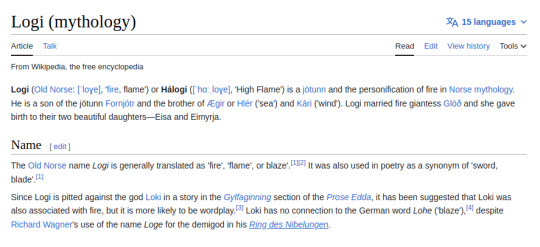
And here's a painting that looks like a ginger to me by James Doyle Penrose (1912):
The second most common hair color depiction is black hair, probably thanks to Marvel as it's most prevalent in modern depictions (e.g. Alan Cumming's Loki in "Son of the Mask", whom I fucking love).
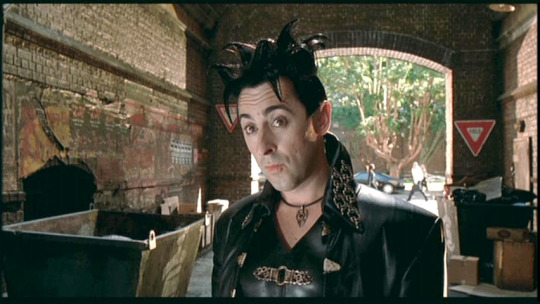
There's also the Valhalla comics that started in 1979 (after Marvel, but I don't think that contributed AT ALL because Vallhala comics are way more myth-accurate and fucking awesome. I am just including it here because it's a black-haired Loki depiction).
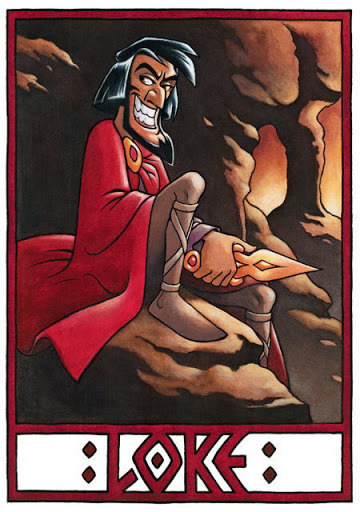
There's also Eric M. Esquivel's Ragnarok n' Roll (have not read and I am not inclined to do so, but it kept showing up in my loki searches 10+ years ago and its existence was archived in my brain due to that). Is it me or does he looks like Cantinflas because of the mustache?

This is Cantinflas btw
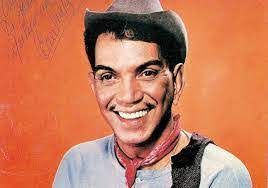
There's also Jul I Valhall Loke (Thanks Scandinavian Twitter users for showing me this gem even if I can't understand the language. I am forever grateful.)
youtube
And surprisingly, Marvel was not the first to give him black hair. Marten Eskil Winge portrayed Loki with black hair in his 1863 painting "Loki and Sigyn."
Neil Gaiman has depicted Loki with a variety of hair colors, USUALLY as a literally "fiery" red-head (Sandman comics & American Gods book), whatever Johnathan Tucker's hair color is in the American Gods TV show, and black-haired (Norse Mythology graphic novel).



There's a brown-haired Loki depiction in Assassin's Creed (I have not played it btw).

And sometimes he's just some demonic thing with horns:

#i have a weird belief myth!loki's hair is brown because no one comments on it#myth!loki#norse mythology#valhalla comics#the life and times of juniper lee#neil gaiman#american gods#arthur rackham#richard wagner#son of the mask#alan cummings#marten eskil winge#sandman#assasin's creed#marvel comics#mcu#jul i valhal#james doyle penrose#peter madsen#eric m. esquivel#idw comics#atreus#god of war#LokiInMedia#IStartShit#hot takes#Youtube
12 notes
·
View notes
Note
Hey. Any books on norse mythology? Modern ones 🤔
Hey, Nonny! @broomsick would definitely have better recommendations than I would. They're SUPER knowledgeable and are more educated on the topic than me! If you're looking for something a bit more fun to read, I recommend Norse Mythology by Neil Gaiman. It's a very fun read and goes over some very classic Norse myths! Hope you find what you're looking for. :) 💚🖤
Note: Neil Gaiman is not an informational source, just a source to read the myths for fun. @broomsick is able to provide you with educational sources; I am not, as I haven't read many modern sources on Norse mythology, unfortunately.
5 notes
·
View notes
Note
Hi there! I just wondered if I could ask you a question about paganism. I have never been a religious person, but I have always been "spiritual", if that makes sense, and everything I've seen that you've posted/reblogged has intrigued me and made me want to look into paganism as a religion for myself. Do you have any book recs or website recs for someone like me? Who knows absolutely nothing about it but is definitely intrigued? :3 Thank you so much, have a great day! (Also, I'm really sorry if I got any terms wrong here dhjdsfsdhfg)
Hi there! Ok, so as far as paganism is concerned it really depends on what type of paganism you’re interested in :) so I’ll give you recommendations for the type I’m most familiar with (aka Norse paganism).
A great website for learning about Norse Paganism that has a lot of different prayers for the gods and ideas for offerings and devotional acts is linked right here:
Blogs you should definitely follow if you want lots of amazing takes on the Norse gods and goddesses are @notthesomefather and @broomsick as well as @freyjas-light . All these blogs are great because they aren’t run by white supremacists or assholes of that sort. Unfortunately that is something you will have to be wary of if you want to explore this type of paganism.
Books you should read! Ok, so ill recommend the best book to begin with (in my personal opinion) is the D’Aulaires Book Of Norse Myths. It’s beautifully illustrated and gives you a general retelling of the Norse myths. I like it cause it’s simple and approachable (more than diving straight into the Poetic Edda and Prose Edda which are the ultimate oldest sources we have fir the myths being told in full). But feel free to read the Poetic Edda and Prose Edda too! I also love the way Neil Gaiman writes about the gods and goddesses and their many stories in his book “Norse Mythology”! You can tell he really did his research.
As for getting started with Norse paganism, here is my MAIN tip. It can and will feel overwhelming so instead of starting off diving right into deity worship with a bunch of different gods and goddesses, acquaint yourself with their stories and really journal and contemplate which one you could learn the most from in your life. Which ones do you feel most interested in? Unlike most of tumblr and pagan places online, you do not need a god or goddess to reach out to you first. That rarely happens despite how many people claim it to occur. Hope this helps! Dm me if you want any other answers! -Velvet Rose
19 notes
·
View notes
Text
5 Norse mythology books to read after watching Thor
Book rec time! Here are the top 5 Norse mythology books to add to your bookshelf.
1. The Valkyrie’s Daughter
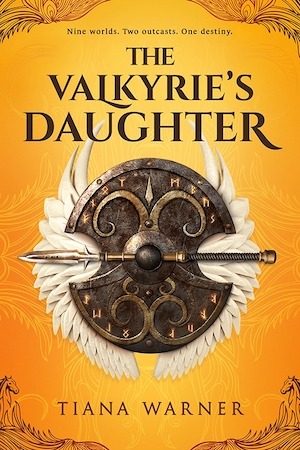
If you want more valkyrie action, The Valkyrie’s Daughter is a Young Adult Fantasy rooted in Norse mythology, and it features a f/f romance. This story about fierce warrior women on horseback is perfect for fans of Valkyrie’s character in Thor.
2. Norse Mythology
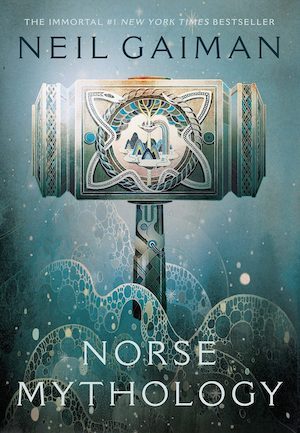
Everything we know about Old Norse beliefs and religion comes from one collection of poems called the Poetic Edda—but if you’re not interested in reading a complicated translation of the original Old Norse poetry, then this Neil Gaiman book is an excellent adaptation of those original stories. It’s probably the best adaptation out there, to be honest. The Thor and Loki tales are delightful, and I found myself picturing the Marvel actors as I read the stories and laughing out loud.
3. Eight Days of Luke
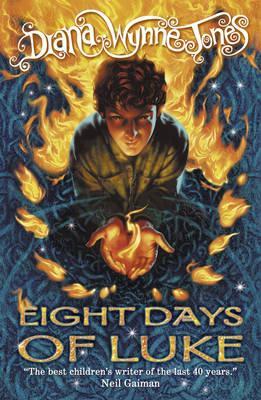
Endorsed by Neil Gaiman, this is a classic Middle Grade book first published in 1975 that’s based on Norse mythology. This is a story you’ll want to re-read to catch all of the hints and subtleties you missed the first time around.
4. The Magnus Chase series
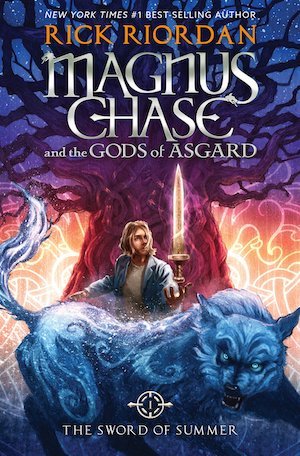
It should come as no surprise that Rick Riordan appears in a list of books based on mythology. His Magnus Chase and the Gods of Asgard series is an excellent Middle Grade adventure rooted in Norse mythology.
5. Loki’s Wolves
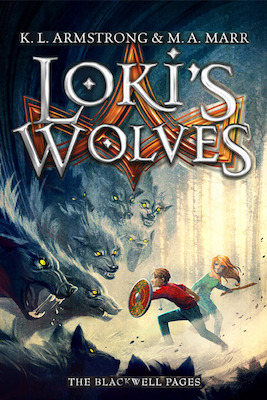
Another one from the Middle Grade shelf, but there really are some great YA/MG books about Norse mythology. This series is often compared to the Magnus Chase series, and K.L. Armstrong and M.A. Marr have created an epic adventure full of Norse gods and monsters.
~
I hope you enjoy these books as much as I did! And if you really want to geek out and understand the roots of Norse mythology, I recommend reading the original sources: the Poetic Edda and the Prose Edda!
#norse#norse mythology#books#valkyrie#thor#loki#tessa thompson#thor love and thunder#love and thunder#sapphic#wlw#new books#ya books#ya fantasy#book rec list#book recommendations#mythology
121 notes
·
View notes
Note
WHERE ARE THE NORSE MYTHOLOGY BOOK RECOMMENDATIONS??
my rats and I need them- you see
we desire them
OHOHOHO YOU ARE IN LUCK
I have only one at the moment but I will be acquiring more when I can. It is called "The Norse Myths" introduced and retold by Kevin Crossley-Holland.
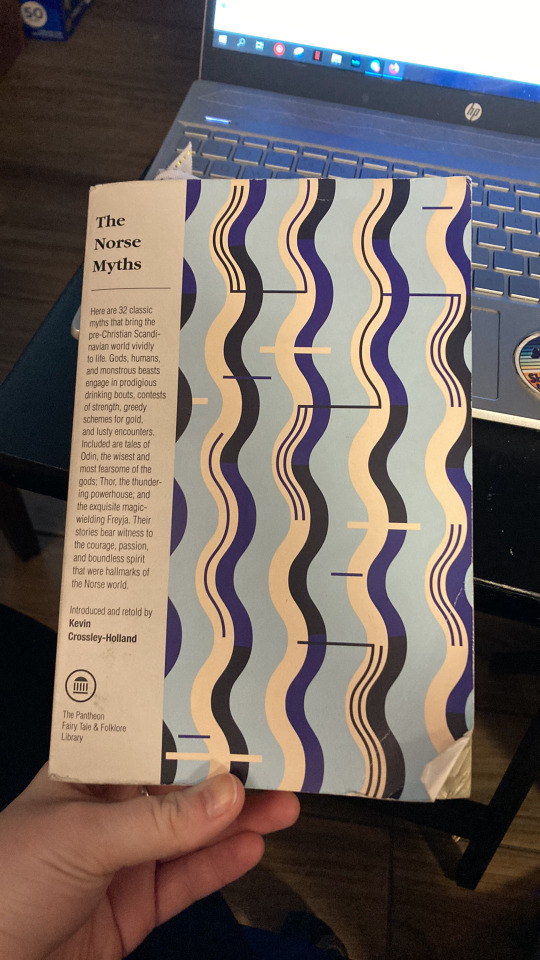
This guy did a fucking GREAT job of retelling them and not overlaying them with Christian influence, which some do because of the fact that the main source material we have about the myths was written down after Christianity arrived in Scandinavia. The introduction section is absolutely invaluable as well, because it's super informative and helps you understand what you read throughout the myths but it's written in a very easy to understand style. Also the font and formatting are really easy for my adhd brain to read :) it's just overall a great resource.
The next version I'm going to try and get my hands on is @neil-gaiman's Norse Mythology.
#The Norse Myths introduced and retold by Kevin crossley-holland my beloved 💖#norse myths#norse mythology#Freya#Odin#Thor#Loki#Frigg#Sif#Tyr#Heimdall
26 notes
·
View notes
Text
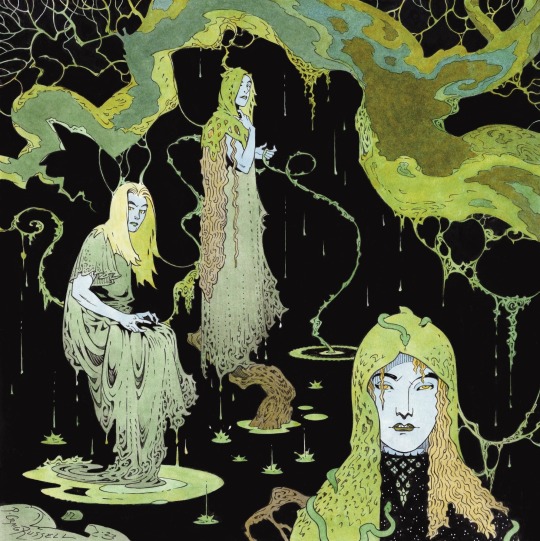
P. Craig Russell “In the Beginning: The Well of Urd”
From Neil Gaiman’s Norse Mythology: “There are the three sisters, the Norns, that tend the well. The well belongs to URD; she is fate and destiny. She is your past. With her are VERAND . . . hers is the present . . . and SKULD . . . her domain is the future.”
Source
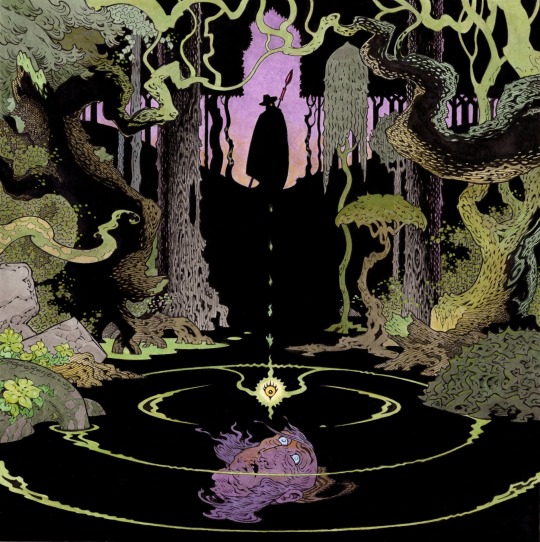
“Mimir’s Head and Odin’s Eye” (from Neil Gaiman’s Norse Mythology)
Source
5 notes
·
View notes
Note
hi ms. s!
i see you're currently reading norse mythology by Carolyne Larrington. I was just wondering which one of the norse mythology books that you love best? Is it this one? or the one written by Neil Gaiman? Or neither??
ps. I love your loki shelf on goodreads! You should definitely try StoryGraph tho! It's a lot more fun, IMO. It has these BuddyRead program/feature that is also sooo much fun! And you can literally transfer your goodreads data to your StoryGraph with just a few clicks!!
Heyho there, love!
Hmm... the best one... hard to say, really! I might actually go with a fiction book. I’m in love with “The Gospel of Loki” by Joanne M. Harris! It retells the myths from Loki’s point of view so it’s entertaining and a new approach but stays really close to the source material! ☺
And yes, I read the one by Carolyne Larrington, I’ve only updated my Goodreads yesterday! 😅
I haven't heard of StoryGraph, it sounds interesting though, I might check it out! Thank you! ♥
9 notes
·
View notes
Text
✨🌈Norse Mythology Resource List🌈✨
This is my own list of books, Twitter accounts and YouTube channels I recommend for learning about Norse mythology.
If you appreciate my work here a coffee would be much appreciated 💖🥰
(This is a recreation of my twitter thread)
1. The Prose Edda (Jesse L Byock translation)
・there’s fierce debate with both pagans and historians as to how accurate the Prose Edda is to original myth as it was written by a medieval antisemitic Christian but it’s what we have to work from.
・unfortunately most English translations omit entire verses to do with Loki, I’ll update this thread if I ever find a translation that includes them all (I’m seriously looking into learning old Norse to do my own translations ngl)
2. The Poetic Edda translated by Lee M Hollander
・Though the name would draw comparison to the Prose Edda, the poems here are anonymous and not written by Snorri
・the poems are taken from the Codex Regius, the most important extant source on Norse mythology.
3. The Penguin Book Of Norse Myths
・accessibly written, includes some fun myths that are normally overlooked, one of my favourite translations of Norse myths. My copy is very worn and dog eared at this point.
4. Neil Gaiman’s Norse Mythology
・putting aside my own issues with Neil for this book alone because it is fun, accessible and easy to read, and there is an audiobook version.
・not all encompassing, many myths are left out, he writes his own dialogue in too.
5. Saga Of The Völsungs
・the translation I have read is the Jesse L Byock translation, you might be already guessing as his name shows up here but he’s one of the best out there (he’s the head archeologist and director of the Mosfell Archeological Project)
・Völsunga Saga is a Heroic Saga, a late 13th century rendition of the tale of the Völsung family interwoven with Norse mythology as the origin points for monsters the hero will slay
・I’m not going to lie to you, it can get a little tedious in the intro but it’s worth it for Loki creating a dragon
6. The Saga Of Erik The Red
・This is our main resource for any kind of detail for Norse witchcraft, however saga prose style can become very tiring to read so if this is not for you I also have recommendations of this list of people outlining the contents
7. Sagaland by Richard Fidler and Kári Gíslason
・A retelling of Kári’s search for his father in Iceland juxtaposed with Norse myth and saga stories, it’s a unique read with some lovely photography as well
8. The Wanderer’s Hávamál by Jackson Crawford
・this is the ONLY version of the Hávamál with the old Norse text side by side with the translation
・Hávamál is a poem from the Codex Regius, and is an important piece on old Norse philosophy and also includes some myth about runes
9. The Icelandic Book Of Fuþark
・a little difficult to get ahold of but worth it for accurate rune poem translation (there’s a surprising amount of misinformation out there)
・you can only order it from the Icelandic Magic Company if you’re in Australia like me
10. The Troll Inside You: Paranormal Activity in the Medieval North by Ármann Jakobsson
・wild how much the title sounds like a self help book but this is an excellent resource on understanding the literary and cultural devices at work in saga literature
・the ebook is free
11. Trickster Makes This World by Lewis Hyde
・not strictly Norse mythology, but if you’re interested in Loki in particular this is my must read book
・I cannot express how much I love this book and how it addresses white supremacy through the lens of Loki myth too
12. Myths And Symbols In Pagan Europe by Hilda Ellis Davidson
・this one was from my professor’s (Hjalti Snær Ægisson) reading list, really appreciate how careful he was to list mostly women translators and authors tbh
・one of the few books to discuss crossovers of culture and myth throughout Europe, comparing and entwining Celtic and Scandinavian myth and how they interact and positing whether this goes back further than the Viking age
13. The Natural and The Supernatural in the Middle Ages by Robert Bartlett
・good breakdown of how limiting conventional ideas of Medieval intellectual discussion are and how much more complicated humans have always been
・can sometimes fall short of where Bartlett was heading
14. Witchcraft and Magic in the Nordic Middle Ages by Stephen A Mitchell
・this book is dealing with the period where old pagan beliefs and witchcraft were entwined with the new Christian shift as the conversion took place
・he discusses legal cases as well as saga text
15. Professor Jackson Crawford's YouTube account
I listed his book earlier in the thread, his YouTube is one of the most incredible resources for Norse myth and literature as well as language and pronunciation, he has his own book list too.
16. 16. Eirnin (@/queertyyr on twitter) is one of my favourite lgbt academics for Norse myth, not sure where they'll end up if twitter goes down but here's their linktree
17. All the Icelandic sagas are available for free in multiple languages from the Icelandic Saga database.
Published versions often have commentary from the individual translator and old Norse comparison notes but if you’re fine with PDFs and don’t want that extra academic info they are all free! Have at em!
I will continue to update this as I get through my own massive pile of reading
2 notes
·
View notes
Text
20 Questions: Writer’s Edition
Thanks for inviting me to jump in @lavenderandvanilla!
How many works do you have on AO3?
34 works, most of them co-written with @greenfaeriefeverdream
2. What’s your total AO3 word count?
2,455,567. We love words.
3. How many fandoms have you written for and what are they?
Mormor.
4. What are your top 5 fics by kudos?
1. Kiss or Kill, our very first fic, written to heal from Reichenbach trauma.
2. Tiger on the Silk Road, the most AU of our AUs, where 1001 Nights and Norse Mythology meet.
3. Tomorrow the World, teen Mormor in 1989. Raw and sweet and intense like only teenage love and despair can be.
4. Steve, a short story I wrote for The Green Faerie’s birthday. Steve, Jim Moriarty’s third in command, is a staple in our fics, and I figured he deserved a story of his own.
5. In shared fifth place: Lethe, the Adventure of the Amnesiac Tiger, and Today Your Love, the sequel to Tomorrow the World, where they are all grown up.
5. Do you respond to comments, why or why not?
Always! Comments are mana from heaven for writers. We love them and will always reply, once we’ve come down from the dopamine high.
6. What’s the fic you’ve written with the angstiest ending?
All our fics have the FaerieCat guarantee that at the end the boys are happy, together, and alive (or a suitable measure of undead). Anyone else is fair game.
I guess This Is a Love Story must be angstiest, though it’s a kind of lead up to Moriamur, which I guess has the angstiest ending if you are not Mormor.
7. What’s the fic you’ve written with the happiest ending?
Ohhhh, hard question! I guess The Ice Man Cometh because they have two cats at the end.
8. Do you write crossovers? If so what is the craziest one you’ve written?
We have written one, with Neil Gaiman’s Sandman, Moriamur.
9. Have you ever received hate on a fic?
No, that would be terrible.
10. Do you write smut? If so what kind?
The Jim Moriarty kind. Dark, epic, painful, bloody, ecstatic.
11. Have you ever had a fic stolen?
Not that I’m aware of. Someone did once send me a picture of Instagram where someone had posted a quote from one of my fics without source.
12. Have you ever had a fic translated?
Several people have asked if they could translate our fics, but we never heard from them since. Translation is bloody hard work.
13. Have you ever co-written a fic before?
Most of my fics have been co-written with The Green Faerie, and one with her and MsLadySmith. I have also written with The Afternoon Break, HastaLux, Flightless Bird, and MoonShineD
14. What’s your all-time favorite ship?
Mormor.
15. What’s a WIP that you want to finish but don’t think you ever will?
Faerie and I started a sci-fi but realized we weren’t in the right headspace to write something of such proportions. The idea was good though - hopefully in the future (ha).
16. What are your writing strengths?
I choose the best co-writer :)
In seriousness, I think feeling the character and letting him flow through me in his most genuine voice.
17. What are your writing weaknesses?
Wordiness. I never use one word, sentence, paragraph, when a hundred can do.
18. What are your thoughts on writing dialogue in other languages in a fic?
We sometimes do it, but only if it’s easy for the reader to deduce what’s being said, and if it’s not required information. For couleur locale it can be powerful.
19. What is the first fandom you wrote for?
Mystrade.
20. What’s your favorite fic you’ve written?
So hard - like choosing a favourite child! They all have their charms.
If you put a gun to my head I’d have to say Kiss or Kill, as that is where it all began.
My at-button is broken so I can’t tag people (I tried above with a copy-pasted one but it doesn’t work). So if you would like to see your name here, consider yourself tagged ;)
5 notes
·
View notes
Note
Saw that you were in need of asks!Where do you get your Viking info from? And are you more into the history, or the vibe? I tend to find research intimidating, so I’m always curious about how others manage it.
Thanks for the ask!! I get my info from a variety of sources, and the unique nature of norse mythology is that no one really agrees and there's no real standard form of the stories. Names are all sorts of mixed up and because of the kennings it can be difficult to really figure out who is doing what and why.
That said, I use a wide variety of websites, usually starting with Wikipedia for the basics. Then I move on to Norse Mythology for Smart People for quick summaries. I have a couple of physical books I use as a reference as well that has the basics and explains a little bit about the details of the stories.
Neil Gaiman has a book about it that was good but I didn't find it as helpful for my purposes as others. And then there's encyclopedias, I use those when I need to know a weird detail.
Finally there's a guy on YouTube I discovered way back before I got into the Norse Mythology stuff and his name is Dr. Jackson Crawford. He's mostly about the Norse language but it interlocks with the mythology pretty heavily. I try to keep to scholarly articles and stuff when I need to know something specific or want to get really in depth for a detail in my wip.
Mostly however, I do the research so I know what I'm ignoring lol. My wip is solely for my own enjoyment so it is not true to its source lol. But I love the research part! Always happy to help if you've got something specific but you don't know where to start :)
2 notes
·
View notes
Text
. Magic Mirrors in Literature and Popular Culture
Title: Magic Mirrors in Literature and Popular Culture
Introduction:
Magic mirrors have enchanted readers and audiences for generations, appearing in various forms of literature and popular culture. From ancient myths and legends to modern novels and films, these mystical objects have captured the imagination and inspired countless stories. This article explores the diverse representations of magic mirrors in literature and popular culture.
Ancient Myths and Folklore:
Magic mirrors have roots in ancient myths and folklore, where they are often depicted as powerful artifacts with supernatural abilities. In Greek mythology, the story of Narcissus revolves around a pool of water that reflects his own image, leading to his tragic demise. Similarly, in Norse mythology, the goddess Freyja possesses a magical mirror that reveals the true nature of things. These ancient tales laid the groundwork for the enduring fascination with magic mirrors in literature and popular culture.
Fairy Tales and Folklore:
Magic mirrors are a common motif in fairy tales and folklore, where they often serve as plot devices or symbols of enchantment. In the classic tale of "Snow White," the wicked queen consults a magic mirror to affirm her status as the fairest in the land. The mirror's response sets off a chain of events that drive the narrative forward. Similarly, in "Beauty and the Beast," the enchanted rose serves as a magical mirror that reflects the Beast's true humanity.
Literary Works:
Magic mirrors also feature prominently in various works of literature, from classic novels to contemporary fiction. In Lewis Carroll's "Through the Looking-Glass," Alice steps through a magic mirror into a fantastical world where logic and reality are inverted. The mirror serves as a portal to an alternate reality, inviting readers on a journey of imagination and discovery. Similarly, in Neil Gaiman's "Coraline," the titular character discovers a secret door in her house that leads to a parallel world controlled by a sinister Other Mother. The mirror becomes a symbol of duality and deception, reflecting the protagonist's inner fears and desires.
Popular Culture:
Magic mirrors continue to captivate audiences in popular culture, appearing in films, television shows, and video games. In Disney's animated classic "Snow White and the Seven Dwarfs," the magic mirror is brought to life as a mysterious, disembodied voice that delivers the queen's fateful question. In the Harry Potter series, the Mirror of Erised shows individuals their deepest desires, serving as a mirror of truth and temptation.
Conclusion:
Magic mirrors hold a special place in literature and popular culture, serving as symbols of mystery, enchantment, and self-reflection. Whether they appear in ancient myths, fairy tales, classic novels, or modern media, magic mirrors continue to fascinate and inspire audiences with their timeless allure and supernatural allure.
source:
Fotobox mieten
fotobox günstig mieten
Fotobox
fotobox krems
beste fotobox
Fotobox mieten Hochzeit
0 notes
Text
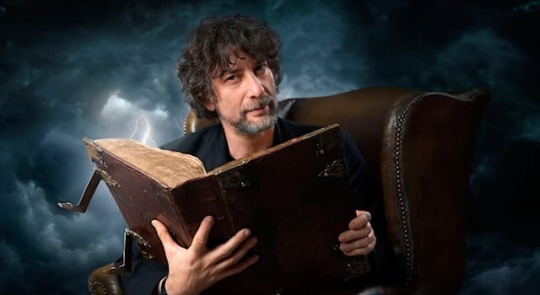
In 2017, fantasy author Neil Gaiman published a book about which mythology?
Neil Gaiman's book "Norse Mythology" contains the ancient tales of Norse gods, giants, and mythical creatures. Known for his masterful storytelling, Gaiman brings these age-old stories to life with his unique blend of wit, imagination, and reverence for the source material.
The book is a collection of fifteen stories that delve into the rich and complex world of Norse mythology. Gaiman draws from various sources, including the "Prose Edda" and the "Poetic Edda", to retell these myths in a way that is accessible and engaging for modern readers. From the creation of the world to the final battle of Ragnarok, each story is a standalone piece that can be enjoyed on its own or as part of the larger narrative.
One of the strengths of Gaiman's retelling is his ability to capture the essence of the characters and their motivations. Whether it's the mischievous Loki, the wise and powerful Odin, or the fierce and fearless Thor, Gaiman brings these gods to life with vivid descriptions and compelling dialogue. He humanizes these mythical figures, making them relatable and understandable, even in their most otherworldly actions.
In addition to the gods, Gaiman also explores the world of giants, dwarves, and other mythical creatures that populate Norse mythology. He introduces readers to Yggdrasil, the world tree that connects the nine realms, and takes them on a journey to Asgard, the realm of the gods, and Jotunheim, the land of the giants.
0 notes
Text
I saw a post recently saying “I wish authors covered books the same way musicians cover songs” and it got me thinking, we kinda do.
obviously it’s hard to do an exact cover of a novel or story - there’s plagiarism and copyright issues there. But we do this in the form of myth retellings and reimaginings of folklore.
for musicians, what makes a song a cover is the use of the same lyrics as another, and usually the same melody. But otherwise everything else is up to a style choice, instrumentation choices, and sometimes even entire genre choices. That’s what makes it unique to the artist covering it. Otherwise it’s just bad or disappointing karaoke.
for authors, we have less to work with. We can’t use exact words from another author (usually) and things like characters and worlds are under copyright well after an author is dead.
but we can play with ideas, themes, plot points, and style. And once the original is in public domain, everything can be used.
but let’s focus on myths here.
you have exact, or mostly exact, retellings of myths like @neil-gaiman’s Norse Mythology and Stephen Fry’s Mythos/Heroes/Troy books that do pretty good retellings with the author’s flair thrown in. But on the whole everything is one to one with the source. Those I would say are closest to an exact cover of a song - what the post was probably referring to.
then you have similar retellings that take ideas and plots and insert them in a new context. There’s the classic Hero’s Journey you find in almost everything from Star Wars to Harry Potter to Percy Jackson. Most adventure stories are a remix of that idea. The basic plot is recognizable but the events, characters, and worlds are unique. This would be like a country artist covering a Queen song (or Johnny Cash’s cover of Hurt by Nine Inch Nails).
Reimaginings are the most transformative of this concept. The distinction from retellings here is crucial as they have different implications. A retelling tries to stay close to the source as possible, whereas a reimagining employs the author’s imagination, creativity, and perspective a bit more.
I love both ways of “covering” stories as an author. I love retelling old myths just as much as I love reimagining things with my own twist. Sure, “Dune” covered by Terry Pratchett would be awesome, or “The Lord of the Rings” as told by Dr. Seuss would be…interesting, but there’s so much in taking the myth of Orpheus, Icarus, or Cain and Abel and reworking it for myself.
#writeblr#author#fiction author#fiction writer#thoughts#blog#creative writing#creativity#post#myths#retelling#reimagining#storytelling#writing#cover
1 note
·
View note